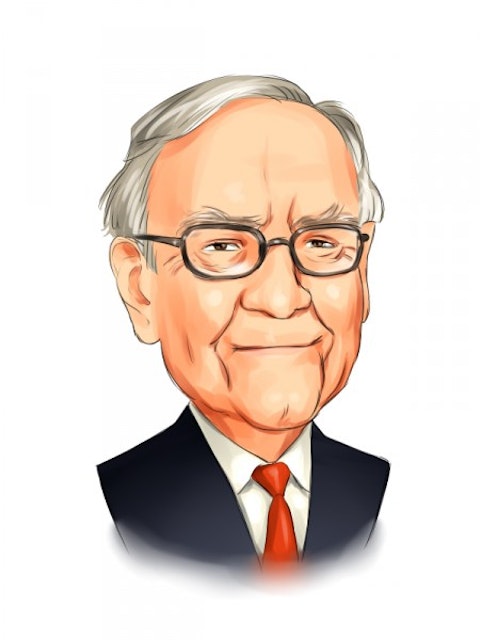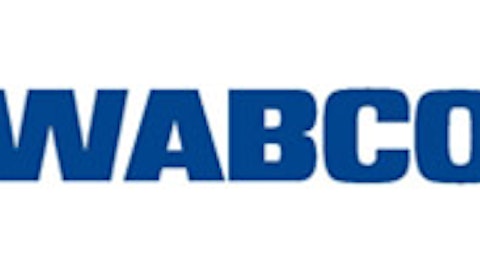There’s nothing wrong with taking ideas from a legendary investor, especially if his first name is Warren. Even investment professionals “steal” ideas from the research of the sell-side, buying up shares in companies after other people’s research points them in the right direction.
Dividend investors would be wise to start stealing ideas from Warren Buffett’s Berkshire Hathaway Inc. (NYSE:BRK.B). Berkshire owns stock in several future dividend rock stars.
Why Berkshire’s portfolio is ripe for picking
Berkshire’s corporate structure gives it a tax discount on dividends. A company that owns 80%-100% of another corporation pays no taxes on dividends received. Smaller holdings provide it a 70% discount the corporate tax rate of 35% on dividends received.
Meanwhile, Berkshire Hathaway Inc. (NYSE:BRK.B) has to pay the full corporate income tax on capital gains. Naturally, dividends taxed at 10.5% are much better than capital gains taxed at 35%.
Buffett ordinarily has a preference for share repurchases because Berkshire Hathaway can increase its position in its top names without paying taxes on the transaction. When The Coca-Cola Company (NYSE:KO) repurchases shares, Berkshire Hathaway would record a capital gain (taxed at the full corporate tax rate, should Berkshire Hathaway Inc. (NYSE:BRK.B) ever sell his position).
Thus, Berkshire’s favorite holding period is “forever.” Berkshire never wants to sell its biggest positions to avoid a 35% capital gain tax rate. Instead, it would prefer to delay those capital gains forever, and eventually collect dividends when it becomes a super majority shareholder in some of the largest firms it owns through the public markets. At a minimum, Berkshire Hathaway Inc. (NYSE:BRK.B) receives a 70% exclusion for dividends paid to Berkshire Hathaway. In effect, Berkshire pays only 10.5% (or less) on dividends received.
Berkshire’s powerful grasp
Warren Buffett is a fan of shareholder-friendly capital allocation. In truth, capital allocation is Berkshire Hathaway Inc. (NYSE:BRK.B)’s business. Whether he owns all or part of a company, smart capital allocation is a necessity. For businesses that want a Buffett premium in their share price, keeping Buffett happy is rule #1.
Here are two companies that pay dividends, and that are perfect for long-term dividend growth investors:
Wells Fargo
One of the biggest mortgage-issuers in the world, Wells Fargo & Co (NYSE:WFC) is a premier retail banking institution. The company has a powerful economic moat in its strong brand and national network of retail branches. Wells Fargo raises capital to make everything from home loans to car loans at rates much lower than the average. The company has a 10-year average cost of deposits of 1.3%, which gives it a competitive advantage in being able to generate a profit at rates well below rates offered by rival banks.
Wells Fargo & Co (NYSE:WFC) also offers excellent capital allocation history. The company used depressed bank values during the financial crisis to swallow up smaller rivals and become one of the largest mortgage lenders in the world.
Since that time, Wells Fargo has also increased its dividends paid to investors after slashing dividends in 2009 to save capital. The company raised its dividend from 5 cents in 2009 to 30 cents per quarter in 2013. Consistent profitability should give it the ability to meet its target payout ratio of 50-60% over the next decade, which on the higher end would lead to a dividend twice as large as its current $.30 quarterly dividend.
At 11 times 2012 earnings and 10 times forward earnings expectations, Wells Fargo & Co (NYSE:WFC) is a company with wide economic moat that understands the idea of proper capital allocation selling at a discount to the broad market. This should make it attractive relative to other dividend-paying companies, which currently trade at earnings-multiple premiums to the market as a whole.
Coca-Cola
The Coca-Cola Company (NYSE:KO) survives and thrives on the back of a high-quality portfolio of non-alcoholic drinks. The company protects itself with its impressive distribution systems, which defend this iconic American brand from new competition.





